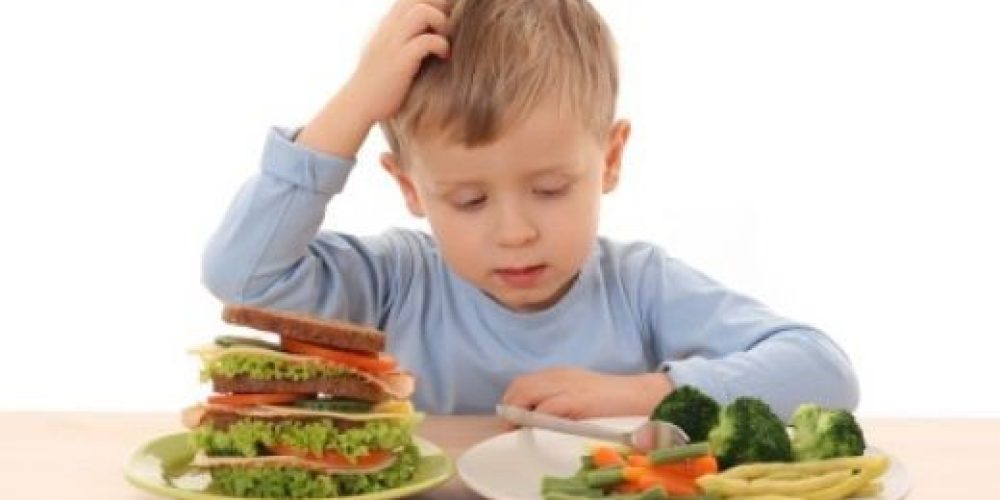A mother while shopping in a popular supermarket was presented with a box of cereal by her five year old son. When she refused to allow him to have it, he threw himself on the floor screaming and shouting in a wild temper tantrum. His mother proceeded to repeat his actions throwing herself unto the floor and screamed and shouted at the top of her voice. Her son now standing in a state of shock and horror at the sight of his mother’s performance, didn’t move a muscle. Then without a word the mother pointed him in the direction to return the product and he sped off without hesitation.
I laughed as I found the advert to be so funny but, this actually happens? Does food cause our children to behave uncontrollably? Let’s find out:
As parents are we confused about what foods are best for our children?
During pregnancy women are advised to avoid smoking and drinking alcohol. They are encouraged to eat a well-balanced diet consuming as much fruit and vegetables as possible. After delivery mothers are encouraged to breast feed as this is the healthiest food God created naturally which is best for babies. Then as babies grow and develop teeth, gastric acid is produced in the stomach to assist with the digestion of solid foods, at which time the baby should be weaned from milk as it then becomes acidic in the stomach. So what foods are best for them at this stage?
The best foods for infants are the foods that nature provides!
However, for most infants the transition is made from breast milk to cow’s milk. Lactic acid is reduced after six months of age and so many children either develop sensitivities presenting with allergic reactions or a tolerance to all dairy. The infant then suffers with disturbances of the stomach and bowels developing diseases not present from birth. If milk is to be given it should be from a plant source and not of animal origin. One good example is almond nuts which can be soaked overnight and then blended and used. Oats can also be soaked, blended and strained to be used as milk.
Infants should only be allowed plain food, suitable to preserve their health, not sweets or foods eaten by adults which they are unable to digest. These meals should be given at regular intervals and not more than three meals a day. This not only teaches the child discipline but, the important lesson of controlling the appetite, and of self-denial, to preserve their health.
Children should not be allowed to eat candies, cakes, chips, fruits, nuts or any other food items between their meals. Irregularity in eating destroys the healthy tone of the digestive organs and children soon lose their appreciation for healthy foods, as their appetites crave for what is harmful to them. Fevers can develop and when allowed to indulge in irregular meals, children become nervous, excitable, irritable and frequently sick as the stomach does not have proper rest periods. The stomach should be given enough time to first digest, then rest to replenish the strength of the digestive juices before another meal is taken. Any food item taken into the stomach during digestion restarts the process and digestion of the earlier food material is interrupted. So 4-5 hours between meals takes care of those processes.
Care and regularity in feeding infants will not only promote health but, make them quiet and sweet tempered and healthier in later life.
Too often parents give unhealthy foods to their children whenever they (children) choose and without consideration of the effects on their health. Self-indulgence grows and both the mental and physical health is affected. Mealtimes should be cheerful and happy times and healthy foods provided. Meals which are provided regularly with dairy, meats and spices arouse the animal passions in the child because of the heavy hormones injected into animals. Antibiotics fed to the animals affects the immune system in children. Sugars, fried and processed foods not only negatively affect immunity but also weight control leading to obesity and allowing for the occurrence of juvenile diabetes and early heart disease.
Foods high in additives, colouring and preservatives are very dangerous for children and can be the start of developing cancers, asthma, allergies and other health issues. Carbonated drinks and juices high in sugar also affect the digestive and immune system.
Fresh fruits, vegetables, seeds, grains and nuts (if not allergic) should be included in the diet of children. Natural foods simply prepared are much healthier for them. Fresh fruit juices and water keeps the digestive system functioning properly and maintains the function of the immune system. These foods offer a vast mix of vitamins and minerals necessary for mental development, physical growth and should be provided at regular intervals.
Choose the healthy option and you will harvest a healthy, intelligent child.
Author: Charlene Chablal-de Gourville BSN, RN, AScn Environmental Health.
Adv Dip Holistic Nutrition (Candidate 2015)
Copyright © Neoteric Natural Health Consultants 2015

